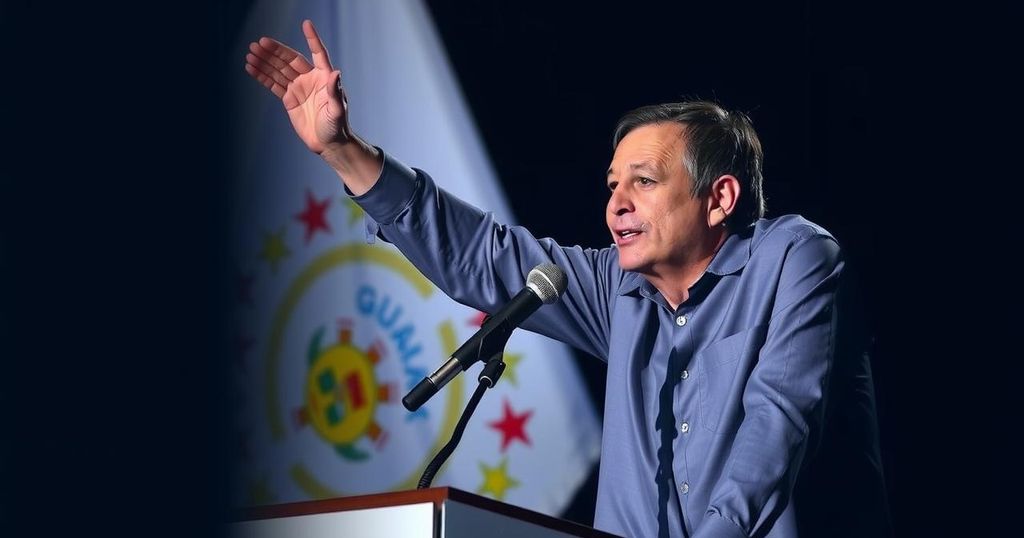Uruguay’s Governing Party Concedes Presidential Run-Off to Left-Wing Challenger
Uruguay’s conservative government concedes in the presidential run-off to left-wing candidate Yamandu Orsi. Alvaro Delgado acknowledged Orsi’s victory, concluding a brief conservative rule. With significant voter turnout and a shift towards the Broad Front, Orsi’s moderate policies promise continuity while addressing economic challenges faced by the nation.
In a significant political shift, Uruguay’s governing party has conceded the presidential run-off to left-wing challenger Yamandu Orsi. The conservative candidate, Alvaro Delgado, acknowledged Orsi’s victory at his campaign headquarters, stating, “with sadness, but without guilt, we can congratulate the winner.” This transition ends a brief tenure of the right-leaning coalition that came to power in 2020 and highlights a return to leadership by the Broad Front, known for its progressive policies in the previous decade.
Uruguay’s voter turnout reached an impressive 89.4%, mirroring levels seen in prior elections, with over 2.7 million citizens eligible to vote. Quick counts indicated that Mr. Orsi, a moderate candidate from the Broad Front, received approximately 49% of the votes, while Mr. Delgado garnered about 46%. This election aligns with a global trend of incumbents being challenged amid growing economic discontent post-pandemic, similar to trends observed in countries like the United States and Britain.
Mr. Orsi, while leading a so-called “new left,” proposes a blend of market-friendly reforms and social welfare initiatives, reminiscent of the Broad Front’s historic governance. His planned policies reflect moderate adjustments rather than radical changes; he aims to attract investments through tax incentives and implements social security reforms while respecting fiscal constraints preferred by voters. As a working-class individual with experience as a history teacher and mayor, Mr. Orsi represents a shift towards a more inclusive governance approach.
Uruguay has traditionally experienced a strong presence of the Broad Front, a left-wing coalition that governed for 15 years before losing power in 2019. The recent 2020 elections resulted in a conservative government that implemented various policies. However, dissatisfaction stemming from economic challenges since the pandemic has influenced voter sentiment, leading to a resurgence of left-wing politics in the form of Mr. Orsi and the Broad Front. This transition marks a significant moment in Uruguayan politics, demonstrating the shift in public priorities and the demand for balanced governance amid pressures for social equality and economic growth.
The recent election results signify a pivotal moment in Uruguay’s political landscape, with Yamandu Orsi’s victory marking a return to leadership by the Broad Front. As Mr. Orsi prepares to assume office, his commitment to moderate, inclusive policies may address the underlying economic concerns that influenced voter sentiment. The transition presents an opportunity for Uruguayan society to reconcile progressive social objectives with stable economic governance.
Original Source: www.expressandstar.com




Post Comment